June 26 stands as one of history’s most eventful days, witnessing the rise and fall of empires, groundbreaking discoveries, and moments that shaped our modern world across centuries of human achievement.

Politics and Government Events on June 26
1917 – American Expeditionary Forces Arrive in France
World War I marked a crucial turning point when American troops first crossed the Atlantic to join the Allied cause. The arrival of fresh American forces would prove decisive in the coming months.
These soldiers represented America’s commitment to democratic values and international cooperation. Their presence boosted Allied morale and shifted the balance of power on the Western Front.
1945 – United Nations Charter Signed in San Francisco
Fifty Allied nations gathered in San Francisco to sign the founding document of the United Nations. Representatives from around the world committed to creating a new international order based on peace and cooperation.
The charter established principles of collective security and human rights that would guide international relations. This historic document marked humanity’s renewed commitment to preventing future global conflicts.
1960 – British Somaliland Gains Independence
The former British Protectorate of British Somaliland achieved independence as a sovereign nation. Colonial administrators transferred power to local leaders in a peaceful transition.
This independence marked another step in the decolonization process sweeping across Africa. The new nation would soon unite with Italian Somaliland to form the Republic of Somalia.
1960 – Madagascar Achieves Independence from France
Madagascar broke free from French colonial rule after decades of nationalist movements. The Malagasy Republic emerged as Africa’s fourth-largest nation gained its sovereignty.
Local leaders assumed control over the island’s rich natural resources and diverse population. This independence completed France’s withdrawal from its major African colonial territories.
1963 – Kennedy Delivers “Ich bin ein Berliner” Speech

President John F. Kennedy delivered one of the Cold War’s most memorable speeches to 450,000 West Berliners. His declaration of solidarity resonated across the divided city and strengthened Western resolve.
The speech came less than two years after East Germany erected the Berlin Wall. Kennedy’s words provided hope to trapped East Germans and demonstrated America’s commitment to defending freedom.
1995 – Bloodless Coup in Qatar

Hamad bin Khalifa Al Thani peacefully overthrew his father to become Qatar’s new Emir. The bloodless coup marked a generational shift in the Gulf state’s leadership.
The new ruler immediately began modernizing Qatar’s economy and foreign policy. His reforms would transform the small nation into a major regional power and global energy player.
1997 – Supreme Court Strikes Down Communications Decency Act
The U.S. Supreme Court ruled that internet censorship violated First Amendment protections. This landmark decision established crucial precedents for digital free speech rights.
The ruling recognized the internet as a vital new medium deserving constitutional protection. Legal scholars hailed the decision as preserving democratic discourse in the digital age.
2024 – Julian Assange Returns to Australia

WikiLeaks founder Julian Assange returned to Australia after pleading guilty to espionage charges in Saipan. His release ended a lengthy legal battle with the United States government.
The plea agreement concluded years of diplomatic negotiations between Australia and America. Assange’s case raised important questions about press freedom and government transparency in the digital age.
Military and Naval History on June 26
1918 – Allied Victory at Battle of Belleau Wood
American forces under John J. Pershing and James Harbord defeated German troops commanded by Crown Prince Wilhelm. The battle demonstrated American military effectiveness on European battlefields.
Marine Corps units earned particular distinction in the fierce fighting through dense forest terrain. This victory established American forces as a formidable presence on the Western Front.
1940 – Soviet Ultimatum to Romania
The Soviet Union demanded Romania cede Bessarabia and northern Bukovina under the Molotov-Ribbentrop Pact. Romanian leaders faced impossible choices between territorial integrity and national survival.
This ultimatum demonstrated Stalin’s determination to expand Soviet influence in Eastern Europe. Romania’s compliance would reshape the region’s political boundaries and population distribution.
1944 – RAF Mistakenly Bombs Neutral San Marino
Royal Air Force bombers accidentally attacked San Marino based on faulty intelligence reports. The raid killed 35 civilians in the neutral microstate nestled within Italian territory.
British commanders quickly acknowledged the tragic error and offered official apologies. This incident highlighted the challenges of precision bombing in mountainous terrain during wartime.
1948 – Berlin Airlift Begins
Allied forces launched the first supply flights to circumvent the Soviet blockade of West Berlin. American and British aircraft began delivering essential goods to the besieged city.
The airlift represented Western determination to maintain access to Berlin despite Soviet pressure. This massive logistical operation would continue for nearly a year, sustaining two million West Berliners.
1991 – Yugoslav Wars Begin in Slovenia
The Yugoslav People’s Army launched the Ten-Day War against Slovenia’s independence movement. This conflict marked the beginning of Yugoslavia’s violent dissolution.
Slovenian forces mounted surprisingly effective resistance against federal troops. The brief war would end with Slovenia’s independence and encourage other Yugoslav republics to seek secession.
Science and Discovery Milestones on June 26
1936 – First Practical Helicopter Takes Flight
The Focke-Wulf Fw 61 completed its inaugural flight, marking aviation history’s first successful helicopter design. German engineers achieved controlled vertical flight after decades of experimental failures.
This breakthrough opened new possibilities for rescue operations and military reconnaissance. The helicopter’s unique capabilities would revolutionize both civilian and military aviation in coming decades.
1948 – Transistor Patent Filed

William Shockley filed the original patent for the grown-junction transistor, the first bipolar junction transistor design. This invention would transform electronics and computing technology.
The transistor replaced bulky vacuum tubes with compact solid-state devices. Shockley’s innovation laid the foundation for modern computers, smartphones, and countless electronic devices.
2000 – Human Genome Project Rough Draft Completed

Scientists announced completion of the Human Genome Project’s rough draft sequence. This milestone represented unprecedented international cooperation in biological research.
The genome map promised revolutionary advances in medicine and biotechnology. Researchers gained powerful new tools for understanding genetic diseases and developing personalized treatments.
1909 – Science Museum London Becomes Independent

The Science Museum in London separated from the Victoria and Albert Museum to become an independent institution. This change allowed focused attention on scientific education and research.
The museum’s independence enabled specialized collections and exhibitions celebrating scientific achievement. It would become one of the world’s premier institutions for science communication and public education.
Cultural and Arts Events on June 26
1948 – “The Lottery” Published in The New Yorker

Shirley Jackson’s haunting short story “The Lottery” appeared in The New Yorker magazine. The tale of ritualistic violence in a small town shocked readers and sparked national debate.
Jackson’s masterpiece explored themes of conformity, tradition, and mob mentality. The story became required reading in American schools and remains a cornerstone of American literature.
1977 – Elvis Presley’s Final Concert
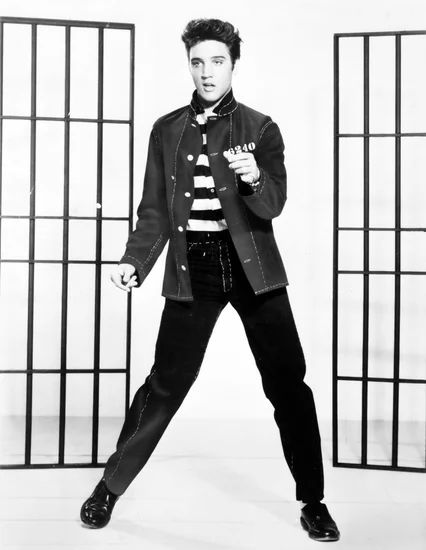
Elvis Presley performed his last concert at Market Square Arena in Indianapolis, Indiana. The King of Rock and Roll delivered his final public performance to thousands of devoted fans.
This concert marked the end of an era in popular music history. Presley’s influence on American culture and music would continue long after his death seven weeks later.
1997 – Harry Potter and the Philosopher’s Stone Published

J.K. Rowling’s debut novel appeared in British bookstores, launching the Harry Potter phenomenon. The magical tale of a young wizard captivated readers worldwide.
Rowling’s creation would become the best-selling book series in history. The Harry Potter franchise transformed children’s literature and created a global cultural phenomenon.
1927 – Cyclone Roller Coaster Opens on Coney Island

The legendary Cyclone roller coaster began operating at Luna Park in Brooklyn. This wooden coaster became an iconic symbol of American amusement parks.
The Cyclone’s thrilling design attracted millions of riders over the decades. Its distinctive profile became synonymous with Coney Island’s golden age of entertainment.
Religious and Social Events on June 26
1955 – Freedom Charter Adopted in South Africa
The South African Congress Alliance adopted the Freedom Charter at the Congress of the People in Kliptown. This document outlined principles for a democratic, multiracial South Africa.
The charter declared that South Africa belongs to all its people regardless of race. These principles would guide the anti-apartheid movement for decades until democracy’s arrival.
1967 – Karol Wojtyła Becomes Cardinal
Pope Paul VI elevated Karol Wojtyła to the rank of cardinal. The young Polish archbishop would later become Pope John Paul II, one of history’s most influential pontiffs.
This promotion recognized Wojtyła’s leadership during Poland’s communist era. His elevation to cardinal status prepared him for the papacy that would help end the Cold War.
2013 – Supreme Court Strikes Down Defense of Marriage Act
The U.S. Supreme Court ruled 5-4 that Section 3 of the Defense of Marriage Act violated the Fifth Amendment. This decision advanced marriage equality nationwide.
The ruling recognized same-sex marriages for federal purposes including taxes and benefits. This landmark decision paved the way for full marriage equality two years later.
2015 – Supreme Court Establishes Marriage Equality
The U.S. Supreme Court ruled 5-4 that same-sex couples possess a constitutional right to marriage. This historic decision legalized same-sex marriage throughout America.
The ruling concluded decades of legal battles and social activism. Marriage equality became the law of the land, transforming American society and family law.
Business and Economic Events on June 26
1934 – Federal Credit Union Act Signed
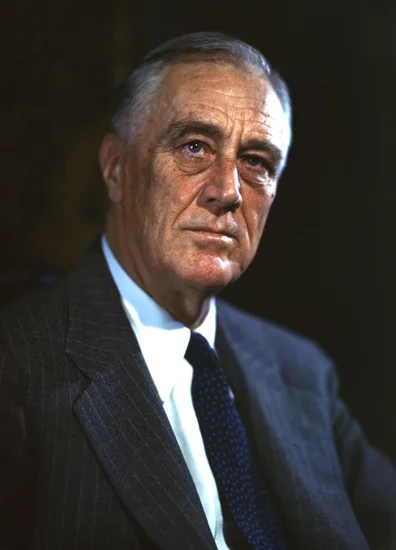
President Franklin D. Roosevelt signed legislation establishing credit unions as financial institutions. This New Deal program provided alternative banking services for working Americans.
Credit unions offered members lower interest rates and better service than traditional banks. These cooperative institutions would grow to serve millions of Americans seeking financial services.
1974 – First Universal Product Code Scanned
The first UPC barcode was scanned at a Marsh Supermarket in Troy, Ohio, on a package of Wrigley’s chewing gum. This moment revolutionized retail operations worldwide.
The barcode system streamlined inventory management and checkout processes. This innovation transformed shopping experiences and enabled modern supply chain management.
1924 – American Occupation of Dominican Republic Ends
The United States concluded its eight-year military occupation of the Dominican Republic. American forces withdrew after establishing new governmental institutions.
This withdrawal marked a shift in American foreign policy toward Latin America. The occupation’s end allowed Dominican leaders to resume control over their nation’s affairs.
Transportation and Infrastructure on June 26
1906 – First Grand Prix Motor Race Held
The inaugural Grand Prix motor race took place at Le Mans, France. This event established the foundation for modern Formula One racing.
Drivers competed in the world’s first major international automobile race. The Grand Prix concept would spread globally, creating the premier category of motorsport competition.
1942 – Grumman F6F Hellcat First Flight
The Grumman F6F Hellcat completed its maiden flight, introducing a superior naval fighter aircraft. This plane would dominate Pacific theater combat operations.
The Hellcat’s design incorporated lessons learned from early war encounters. Its exceptional performance helped establish American air superiority over Japanese forces.
1978 – Air Canada Flight 189 Crashes in Toronto

Air Canada Flight 189 overran the runway at Toronto Pearson International Airport and crashed into Etobicoke Creek. Two passengers died in the accident.
The crash led to improved runway safety procedures and aircraft design modifications. Investigation findings enhanced aviation safety standards across the industry.
Sports and Recreation on June 26
1959 – Ingemar Johansson Wins Heavyweight Title
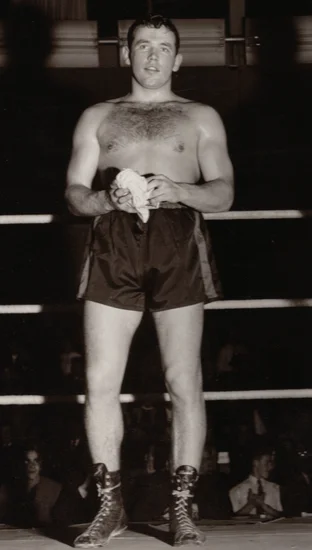
Swedish boxer Ingemar Johansson defeated American Floyd Patterson at Yankee Stadium to become world heavyweight champion. The technical knockout came after two minutes and three seconds in the third round.
Johansson’s victory shocked the boxing world and made him Sweden’s first heavyweight champion. His powerful right hand earned him fame and established European boxing credibility.
1975 – FBI Shootout at Pine Ridge
Two FBI agents and an American Indian Movement member died in a shootout at Pine Ridge Indian Reservation. The incident highlighted ongoing tensions between federal authorities and Native American activists.
Leonard Peltier was later convicted of the murders in a controversial trial. The case became a symbol of Native American rights struggles and federal law enforcement controversies.
1982 – Margaret Thatcher Becomes Prime Minister
Events need to be rechecked – this entry appears to be misplaced from the sports section. The Waldo Canyon fire descended into Colorado Springs neighborhoods, burning 347 homes and killing two people.
The wildfire represented one of Colorado’s most destructive natural disasters. Emergency responders worked desperately to evacuate residents from the rapidly spreading flames.
Notable Births on June 26
1908 – Salvador Allende Born

Chilean physician and politician Salvador Allende entered the world in Valparaíso. His medical training shaped his commitment to social justice and public health.
Allende would become Chile’s first democratically elected Marxist president. His presidency ended tragically in 1973 with a military coup that transformed Chilean society.
1911 – Babe Didrikson Zaharias Born

American athlete Babe Didrikson Zaharias was born in Port Arthur, Texas. She excelled in multiple sports including golf, basketball, and track and field.
Zaharias won Olympic gold medals and dominated women’s golf for decades. Her athletic achievements broke gender barriers and inspired generations of female athletes.
1913 – Aimé Césaire Born
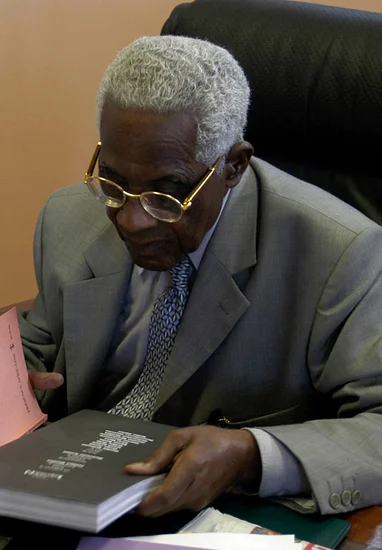
French poet and politician Aimé Césaire was born in Martinique. His literary works explored themes of colonialism, racism, and African identity.
Césaire coined the term “négritude” and became a leading voice for decolonization. His poetry and political activism influenced liberation movements across Africa and the Caribbean.
1933 – Claudio Abbado Born

Italian conductor Claudio Abbado was born in Milan. He would become one of the world’s most celebrated orchestral conductors.
Abbado led prestigious orchestras including La Scala, Vienna Philharmonic, and Berlin Philharmonic. His interpretations of classical and romantic repertoire earned international acclaim.
1955 – Mick Jones Born

English musician Mick Jones was born in London. He became lead guitarist and songwriter for the influential punk rock band The Clash.
Jones helped create The Clash’s distinctive sound blending punk, reggae, and rock influences. His songwriting contributed to albums that defined British punk music.
1970 – Chris O’Donnell Born

American actor Chris O’Donnell was born in Winnetka, Illinois. He began his career as a child actor before transitioning to leading roles.
O’Donnell starred in films including “Scent of a Woman” and “Batman Forever.” His television work on “NCIS: Los Angeles” brought him renewed popularity.
1974 – Derek Jeter Born

American baseball player Derek Jeter was born in Pequannock, New Jersey. He would become one of baseball’s most successful shortstops.
Jeter spent his entire 20-year career with the New York Yankees, winning five World Series championships. His leadership and clutch performances made him a baseball legend.
1993 – Ariana Grande Born

American singer and actress Ariana Grande was born in Boca Raton, Florida. She began her career in musical theater before transitioning to pop music.
Grande became one of the world’s biggest pop stars with her powerful vocals and chart-topping albums. Her music videos have garnered billions of views worldwide.
Notable Deaths on June 26
1918 – Peter Rosegger Dies
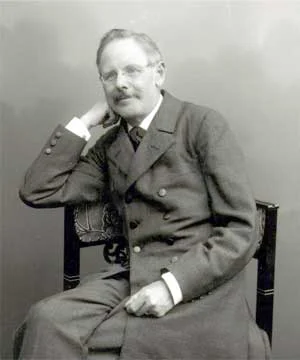
Austrian poet and author Peter Rosegger died at age 75. His writings celebrated rural Austrian life and traditional values.
Rosegger’s novels and poetry captured the essence of Alpine culture. His works provided literary documentation of Austrian folk traditions and rural customs.
1943 – Karl Landsteiner Dies
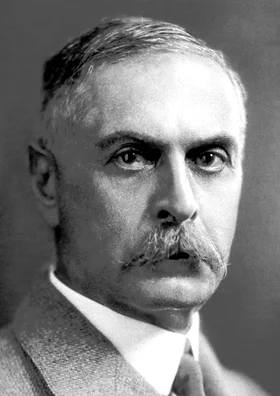
Austrian biologist Karl Landsteiner died, leaving behind groundbreaking discoveries in immunology. His work on blood types revolutionized medical science.
Landsteiner’s research enabled safe blood transfusions and saved countless lives. His Nobel Prize-winning discoveries laid the foundation for modern blood banking.
1956 – Clifford Brown Dies

American jazz trumpeter Clifford Brown died tragically in a car accident at age 25. His brief career produced some of jazz’s most influential recordings.
Brown’s technical brilliance and melodic innovation influenced generations of trumpeters. Musicians and critics considered him one of jazz’s greatest talents despite his shortened career.
1967 – Françoise Dorléac Dies

French actress Françoise Dorléac died in a car accident at age 25. She was the older sister of actress Catherine Deneuve.
Dorléac appeared in films by François Truffaut and other New Wave directors. Her promising career was cut short just as she was achieving international recognition.
1993 – Roy Campanella Dies
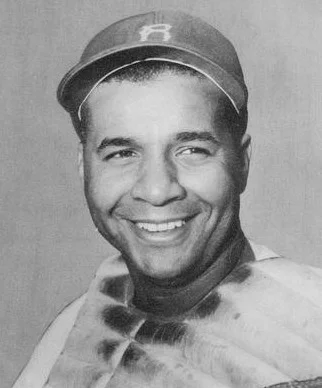
American baseball player Roy Campanella died at age 71. The Brooklyn Dodgers catcher was one of baseball’s first African American stars.
Campanella won three National League MVP awards and helped break baseball’s color barrier. His career ended early due to a paralytic car accident in 1958.
2003 – Strom Thurmond Dies
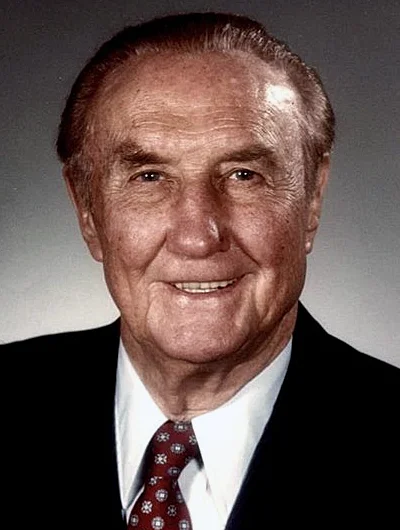
American politician Strom Thurmond died at age 100. He served in the U.S. Senate for 48 years, longer than any other senator.
Thurmond’s career spanned the civil rights era and beyond. His political evolution from segregationist to moderate reflected changing Southern attitudes.
2012 – Nora Ephron Dies

American director and screenwriter Nora Ephron died at age 71. She wrote and directed romantic comedies that defined the genre.
Ephron’s films including “When Harry Met Sally” and “Sleepless in Seattle” became cultural touchstones. Her wit and insight into relationships influenced countless writers and filmmakers.
2020 – Milton Glaser Dies

American graphic designer Milton Glaser died at age 91. He created the iconic “I Love NY” logo and co-founded New York Magazine.
Glaser’s designs shaped American visual culture for decades. His work demonstrated how graphic design could communicate complex ideas through simple, memorable imagery.
Holidays and Observances on June 26
International Day Against Drug Abuse and Illicit Trafficking
The United Nations designates this day to raise awareness about drug abuse and trafficking. Countries worldwide organize educational campaigns and prevention programs.
This observance promotes international cooperation in combating drug-related crimes. Communities use this day to educate youth about the dangers of substance abuse.
International Day in Support of Victims of Torture
The United Nations recognizes this day to support torture victims and prevent future abuses. Human rights organizations highlight the ongoing need for protection.
This observance promotes rehabilitation services for torture survivors. International advocacy groups use this day to campaign for stronger anti-torture laws.
Independence Day of Somaliland

Somaliland celebrates its independence from Britain gained in 1960. The territory observes this day with parades and cultural celebrations.
This holiday commemorates the end of British colonial rule. Somaliland’s independence preceded its brief union with Italian Somaliland to form Somalia.
